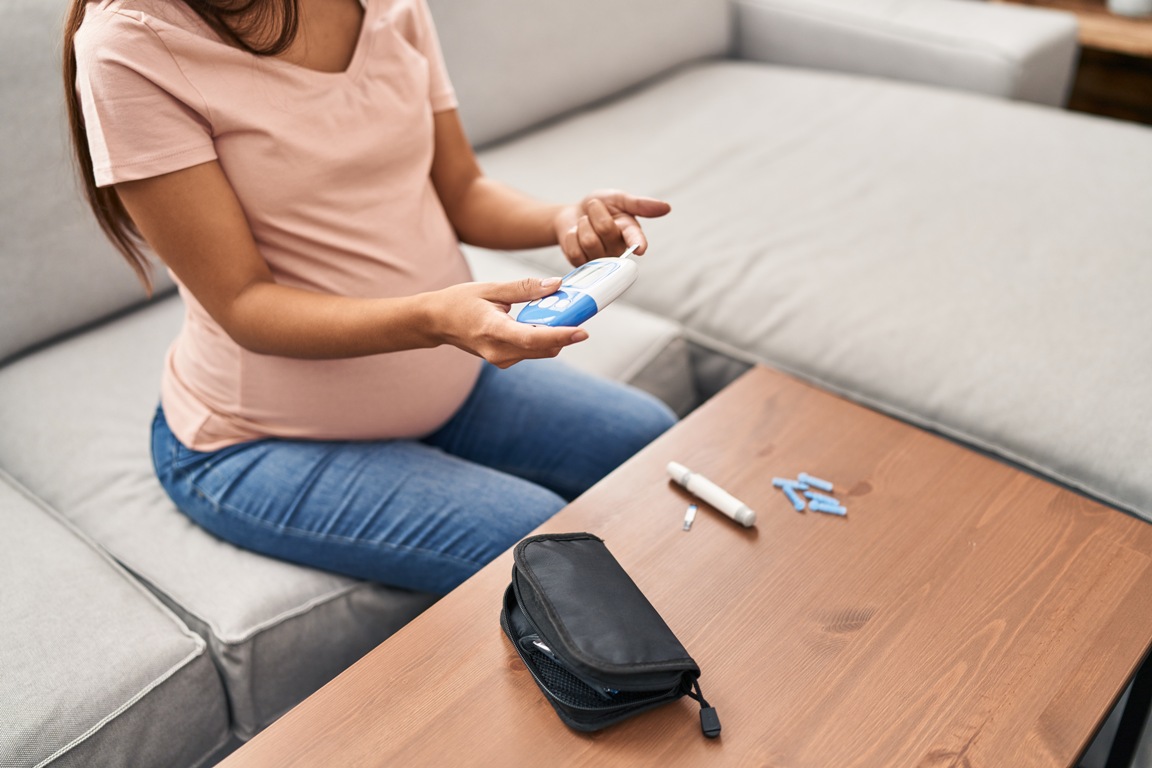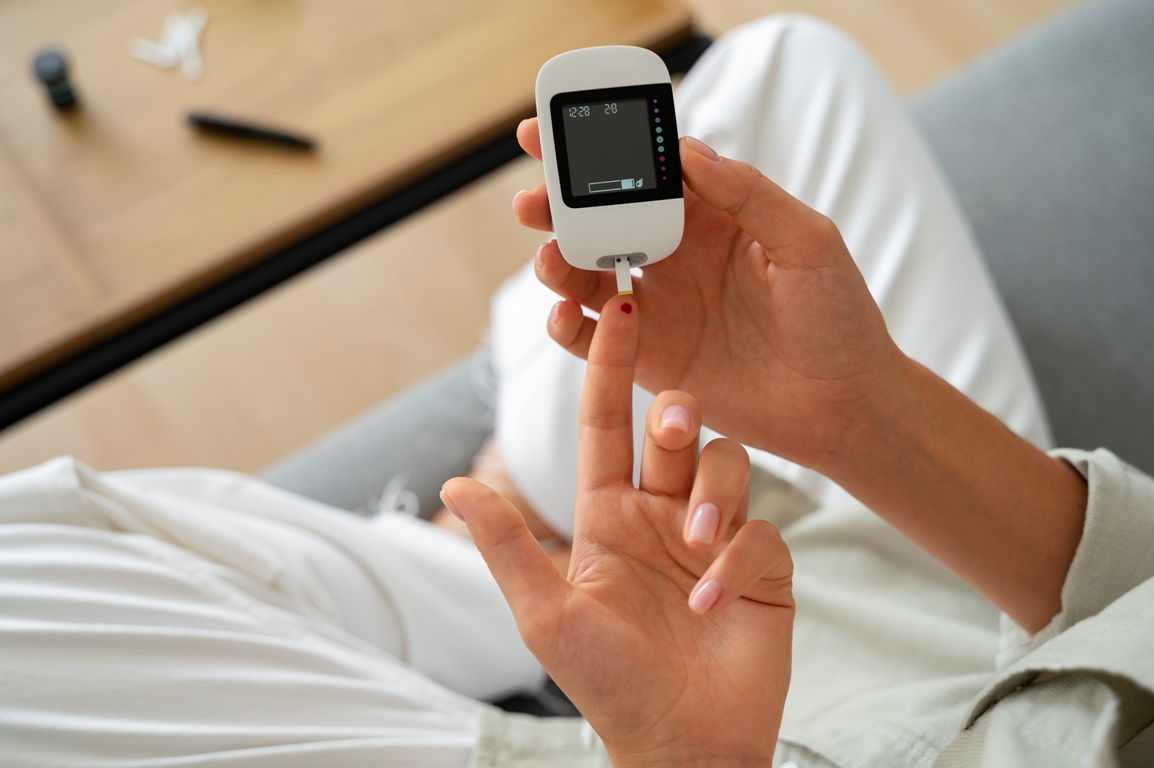Gestational diabetes is a common condition that many women face during pregnancy, but the good news is that in most cases, it goes away soon after giving birth. However, understanding exactly how soon after birth gestational diabetes goes away can vary depending on several factors. This article will cover the timeline, what happens if it doesn’t resolve immediately, and how you can take care of yourself after delivery to ensure a smooth recovery.
Table of Contents
- What Is Gestational Diabetes?
- How Soon After Birth Does Gestational Diabetes Go Away?
- Can Gestational Diabetes Go Away Immediately After Birth?
- What Happens If Gestational Diabetes Doesn’t Go Away?
- Postpartum Care and Managing Blood Sugar Levels
Key Takeaways
- Most women see gestational diabetes go away within 6 weeks postpartum.
- Immediate postpartum monitoring is essential to ensure blood sugar levels return to normal.
- In some cases, gestational diabetes may persist and turn into Type 2 diabetes if not properly managed.
What Is Gestational Diabetes?
Gestational diabetes is a type of diabetes that develops during pregnancy. It affects how your body uses sugar, causing high blood sugar levels that can affect both you and your baby. The good news is that it is typically a temporary condition, but it requires careful management to prevent complications.
Causes and Risk Factors
Several factors can contribute to the development of gestational diabetes, including being overweight, having a family history of diabetes, or being over the age of 25 when pregnant. Hormonal changes during pregnancy also play a significant role.

Short-term and Long-term Effects
While gestational diabetes is usually manageable during pregnancy, it can lead to short-term complications such as larger-than-average babies, early deliveries, and higher risks of needing a C-section. In the long term, women with gestational diabetes are at higher risk of developing Type 2 diabetes later in life if they don’t manage their blood sugar effectively.
How Soon After Birth Does Gestational Diabetes Go Away?
In most cases, gestational diabetes goes away soon after the baby is born. On average, blood sugar levels return to normal within 6 weeks postpartum. This is because after delivery, the placenta—responsible for much of the insulin resistance—is no longer present, and the body can usually regulate insulin levels more effectively.
Factors That Affect Recovery Time
The speed at which gestational diabetes goes away after birth can depend on a variety of factors, including:
- Severity of the condition during pregnancy
- Postpartum recovery speed
- Whether you had diabetes before pregnancy
| Factor | Impact on Recovery Time |
|---|---|
| Severity of Gestational Diabetes | Longer recovery time if condition was severe |
| Pre-existing Diabetes | May take longer to resolve if prediabetes was present |
| Postpartum Care | Good blood sugar management can speed recovery |

Can Gestational Diabetes Go Away Immediately After Birth?
For some women, gestational diabetes may go away immediately after delivery. This typically happens when insulin resistance drops rapidly following the removal of the placenta, which plays a key role in increasing insulin resistance during pregnancy.
How the Placenta Affects Insulin Resistance
The placenta produces hormones that make it harder for the body to use insulin effectively, which leads to gestational diabetes. Once the placenta is gone, insulin resistance usually decreases dramatically, allowing many women to experience immediate relief.
Real-life Cases of Immediate Recovery
In some cases, women report that their gestational diabetes went away right after giving birth. However, this isn’t always the case, and every individual’s experience may vary. It’s essential to monitor blood sugar levels closely even if you feel well.
What Happens If Gestational Diabetes Doesn’t Go Away?
While most women see their gestational diabetes resolve shortly after birth, there are cases where it may persist. If your blood sugar levels remain elevated after delivery, you might be dealing with a case that has progressed into Type 2 diabetes.
Postpartum Glucose Testing
It’s recommended that women with gestational diabetes undergo glucose testing between 6 to 12 weeks postpartum to ensure that their blood sugar levels have returned to normal. If the results show persistent high blood sugar, your doctor may diagnose Type 2 diabetes.
Signs to Watch For
If your gestational diabetes doesn’t go away after birth, you may notice signs such as excessive thirst, frequent urination, or fatigue. It’s important to stay vigilant and follow up with your healthcare provider to avoid long-term complications.

Postpartum Care and Managing Blood Sugar Levels
Managing blood sugar levels in the postpartum period is crucial for women who experienced gestational diabetes. While most women find their blood sugar normalizes after childbirth, proper care is necessary to prevent any lingering effects or complications. This section will focus on the steps to ensure healthy postpartum recovery.
Importance of Blood Sugar Monitoring
After delivery, it’s essential to continue monitoring your blood sugar levels. Your doctor will likely recommend regular glucose testing in the weeks following birth to ensure that your gestational diabetes has fully resolved. It’s advised to keep track of blood sugar levels, especially if you had a severe case of gestational diabetes during pregnancy.
| Postpartum Period | Recommended Blood Sugar Testing Frequency |
|---|---|
| First 6 weeks | Daily or weekly, as advised by your doctor |
| 6-12 weeks | Glucose tolerance test (GTT) |
| After 12 weeks | Annual check-ups if blood sugar is normal |
Diet and Exercise After Gestational Diabetes
Diet and physical activity play a significant role in maintaining healthy blood sugar levels after birth. A balanced diet that’s low in refined carbohydrates and sugars can help stabilize glucose levels. Incorporating regular exercise can also improve insulin sensitivity, which is particularly helpful for preventing Type 2 diabetes after having gestational diabetes.
Breastfeeding and Blood Sugar Levels
Breastfeeding can positively affect your blood sugar levels, as it requires extra energy and helps to burn glucose. Some studies suggest that women who breastfeed may lower their risk of developing Type 2 diabetes later in life, especially if they had gestational diabetes during pregnancy. It’s important to eat balanced meals and stay hydrated while breastfeeding to keep both you and your baby healthy.
How to Prevent Gestational Diabetes from Turning into Type 2 Diabetes
Even though gestational diabetes often goes away after childbirth, women who have experienced it are at higher risk of developing Type 2 diabetes later in life. Here’s how you can reduce the risk.
Maintain a Healthy Weight
Staying within a healthy weight range through a balanced diet and regular physical activity can significantly reduce your risk of developing Type 2 diabetes. Even losing a small percentage of body weight, if you are overweight, can improve your insulin sensitivity and help prevent diabetes.
Regular Medical Check-ups
It’s essential to have routine check-ups with your healthcare provider, especially if you had gestational diabetes. Annual blood sugar tests can help catch any early signs of Type 2 diabetes, allowing you to make lifestyle changes before the condition progresses.
Healthy Lifestyle Habits
- Eat a diet rich in whole grains, vegetables, and lean proteins.
- Avoid processed foods high in sugars and refined carbs.
- Incorporate physical activity into your daily routine – aim for at least 30 minutes of moderate exercise most days of the week.
- Limit alcohol and quit smoking to further reduce health risks.
When to See a Doctor After Gestational Diabetes
Even after gestational diabetes resolves, it’s important to stay proactive about your health. Here are some signs that indicate it’s time to see your doctor.
Symptoms to Watch For
If you notice symptoms like excessive thirst, frequent urination, extreme fatigue, or unexpected weight loss, it may be a sign that your gestational diabetes has not fully gone away or has progressed into Type 2 diabetes. It’s essential to consult your healthcare provider for further testing and guidance.
Postpartum Glucose Testing
Doctors typically recommend a glucose tolerance test (GTT) between 6 to 12 weeks postpartum to check whether your gestational diabetes has gone away. If blood sugar levels are normal, you can reduce the frequency of testing. However, if the results are still high, further monitoring and lifestyle changes may be needed.
Frequently Asked Questions
How long does it take for gestational diabetes to go away after delivery?
In most cases, gestational diabetes goes away within 6 weeks after giving birth. However, it’s important to have a follow-up glucose test to ensure that blood sugar levels have returned to normal.
What happens if gestational diabetes doesn’t go away after birth?
If gestational diabetes persists after childbirth, it may indicate the onset of Type 2 diabetes. This requires further medical intervention and ongoing blood sugar management.
Can breastfeeding help gestational diabetes go away faster?
Yes, breastfeeding can help lower blood sugar levels, as it requires additional energy and can improve insulin sensitivity, potentially helping gestational diabetes resolve faster.
How is postpartum glucose testing done?
Postpartum glucose testing usually involves a glucose tolerance test (GTT), where you drink a sugary solution, and your blood sugar levels are tested at intervals to see how your body processes the glucose.
Is it possible to develop Type 2 diabetes after gestational diabetes?
Yes, women who have had gestational diabetes are at a higher risk of developing Type 2 diabetes later in life. It’s essential to maintain healthy habits and have regular check-ups to minimize this risk.






